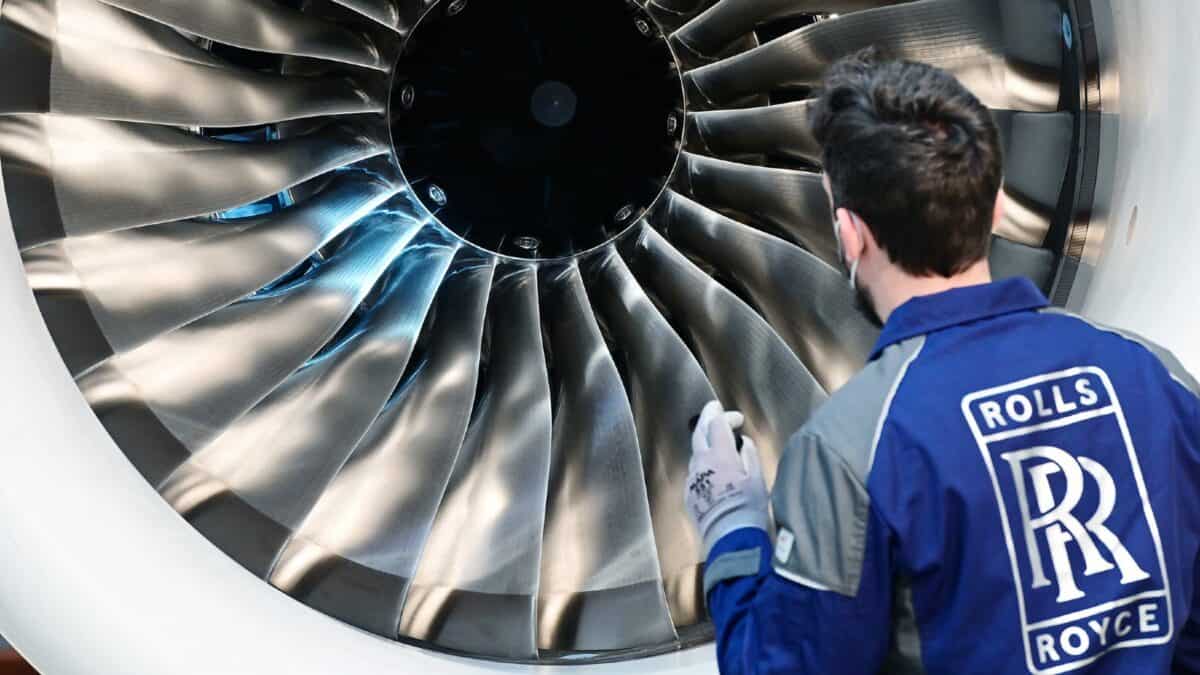
Image source: Rolls-Royce plc
The last two years have been exceptional for the Rolls-Royce (LSE:RR.) share price, skyrocketing by over 500% since the start of 2023. A new management team executing a radical overhaul of the business seems to have been just what it needed to get back on track after struggling for years.
However, with such impressive growth under its belt, surely the stock’s due for a bit of a correction? Well, not every analyst is convinced. In fact, looking at the latest set of 12-month share price forecasts, Rolls-Royce could hit as high as 850p by this time next year.
In other words, another 50% increase in its market-cap might be just around the corner. But is this realistic or just wishful thinking?
Inspecting Rolls-Royce’s valuation
From a relative valuation perspective, the group’s price-to-earnings ratio suggests further share price gains could be ahead. After all, at 20.6 times earnings, Rolls-Royce shares are trading firmly below the aerospace & defence sector’s 35.6 median average.
Looking at the firm’s latest trading update, it certainly appears to be holding its momentum to boost its valuation further. Underlying operating profit’s on track to land between £2.1bn and £2.3bn for its 2024 fiscal year, with free cash flow generation following closely at £2.1bn to £2.2bn. And looking further into the future, these figures could rise to £2.5bn-£2.8bn and £2.8bn-£3.1bn respectively by 2027.
The free cash flow generation’s particularly exciting as it’s sufficient to wipe out the remaining £967m from its international pension deficit as well as bring down its remaining £5.8bn debt burden. It also paves the way for increased investment into its Power Systems division to accelerate small modular reactor (SMR) research.
SMR research is particularly important since current projections estimate this could become a $295bn market by 2043, making it a massive long-term growth opportunity with currently limited competition. And it’s no secret that being a first mover in a brand new massive industry can be an immensely lucrative and powerful advantage.
Taking a step back
While management guidance and long-term tailwinds certainly paint a pretty picture, not everyone’s convinced. In fact, one analyst predicted that the stock price could collapse to as low as 240p, with the average consensus sitting at 580p – roughly where the FTSE 100 stock trades today.
Let’s start with its Civil Aerospace sector, which is notoriously fickle. Right now, demand for its engines and maintenance services is pretty strong. But we’ve already seen such momentum evaporate in the past whether from economic pressure, volcanic eruptions, or terrorism – the latter of which seems to have an elevated risk at the moment given all the geopolitical conflicts breaking out in recent years.
As for its SMRs, the technology’s undeniably exciting yet fundamentally unproven. Investors simply don’t know how profitable these reactors will be. So even if these products end up generating a lot of revenue, the profit and free cash flow margins could be far from impressive.
There’s no denying the company’s in much better shape than a few years ago. But with a lot of expectations already baked into its valuation, I think an 850p share price target’s a bit ambitious. So for now, I’m not looking to add any of the shares to my portfolio.













